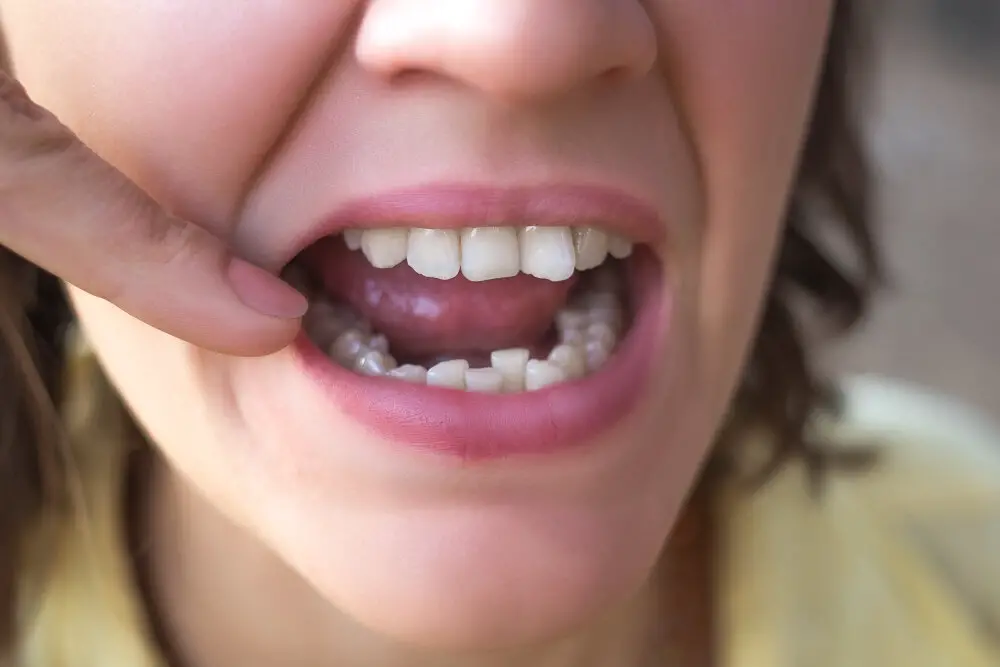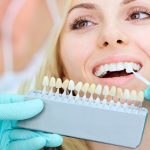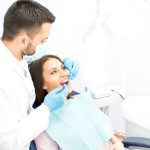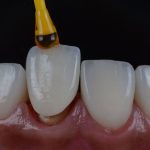Why Are My Teeth Wiggly? Exploring the Causes and Solutions for Loose Teeth

Loose or wiggly teeth can be a concerning issue for both children and adults. Teeth are meant to be firmly anchored to the jawbone, and any movement or instability can indicate a problem. The causes of loose teeth can vary, ranging from poor oral hygiene to underlying medical conditions. Regardless of the cause, it’s crucial to address loose teeth promptly to prevent further damage or tooth loss. Several factors can contribute to loose teeth, including gum disease, trauma, hormonal changes, and aging. Gum disease is one of the leading causes of loose teeth, as it damages the tissues and bone supporting the teeth, leading to tooth loss if left untreated. Trauma or injury to the mouth can also cause teeth to become loose, as the force can damage the ligaments and bone holding the tooth in place. Hormonal changes, such as those experienced during pregnancy or menopause, can affect the gums’ health and lead to tooth mobility. Finally, aging can also cause teeth to become loose, as the bone density and gum tissue can deteriorate over time.
Loose teeth refer to teeth that have become unstable or unsteady in their sockets due to damage or disease. This condition can occur in both children and adults and is often caused by poor oral hygiene, traumatic injury, or periodontal disease. Loose teeth can be a sign of underlying dental issues that require prompt attention from a dentist. Neglecting loose teeth can lead to further complications such as tooth loss, gum infection, and even bone loss. The treatment for loose teeth varies depending on the underlying cause, and in some cases, extraction may be necessary. It is important to maintain good oral hygiene practices and seek professional dental care to prevent and treat loose teeth.
Having a deep understanding of the causes and solutions for loose teeth is crucial for maintaining good oral health. Understanding the causes of loose teeth enables individuals to take preventive measures and avoid further damage to their teeth. Some of the common causes of loose teeth include gum disease, trauma, and aging. On the other hand, understanding the solutions for loose teeth helps individuals to take corrective measures and prevent tooth loss. Some of the solutions for loose teeth include proper dental hygiene, regular dental checkups, and undergoing necessary dental procedures. Therefore, having a good grasp of the causes and solutions for loose teeth is essential in preventing tooth loss and maintaining overall dental health.
Causes of Loose Teeth

Loose teeth can be a concerning and uncomfortable issue for individuals of all ages. There are several possible causes for loose teeth, some of which are preventable and others that may require professional treatment. One common cause of loose teeth is gum disease, which occurs when there is an infection in the gum tissue that causes the gums to pull away from the teeth. This can lead to bone loss and ultimately result in loose teeth. Poor oral hygiene, smoking, and certain medical conditions like diabetes can all increase the risk of developing gum disease. Another potential cause of loose teeth is trauma or injury to the mouth. This can occur from a sports injury, car accident, or simply from biting down too hard on something. When the tooth is knocked out of its socket or the surrounding bone is damaged, it can lead to the tooth becoming loose. In some cases, the tooth may need to be extracted and replaced with a dental implant. Other causes of loose teeth may include hormonal changes during pregnancy or menopause, vitamin deficiencies, or certain medications. It is important to see a dentist if you are experiencing loose teeth to determine the underlying cause and receive appropriate treatment.
Gum disease, also known as periodontal disease, is a common condition that affects the tissues surrounding teeth. It is caused by the buildup of plaque and tartar on teeth, which leads to inflammation and infection in the gums. The symptoms of gum disease include red, swollen, or bleeding gums, bad breath, and loose teeth. If left untreated, gum disease can lead to tooth loss and other serious health problems, such as heart disease and diabetes. Treatment for gum disease may include professional cleaning, medication, and surgery in severe cases. Maintaining good oral hygiene, such as brushing and flossing regularly, is key to preventing gum disease.
Trauma or injury to the teeth can cause looseness, pain, and discomfort. This can occur from a variety of reasons, such as playing sports without proper protection, accidents, or falls. When the teeth are subjected to a significant amount of force, the ligaments that hold them in place can become damaged or strained, causing the teeth to feel wiggly. In some cases, the tooth may even be knocked out completely. Prompt treatment is necessary to prevent further damage or infection. Depending on the severity of the injury, treatment options may include splinting, root canal therapy, or even extraction. It is important to take precautions to prevent dental trauma by wearing protective gear and being mindful of potential hazards.
Bruxism, commonly known as teeth grinding or clenching, can cause teeth to become loose. This condition is often associated with stress and anxiety, and may occur during sleep or throughout the day. Grinding or clenching can wear down the enamel of the teeth, making them more susceptible to damage and decay. In severe cases, bruxism can even lead to tooth loss. Treatment for bruxism may include stress management techniques, wearing a dental guard at night, or addressing any underlying dental issues. It is important to seek treatment for bruxism to prevent further damage to the teeth and to improve overall oral health.
Poor nutrition can be a significant factor when it comes to loose teeth. When the body does not receive adequate nutrients, it can affect the health of the teeth and gums. The lack of essential vitamins and minerals can weaken the bones that support the teeth, causing them to loosen. Additionally, a diet high in sugar and carbohydrates can promote the growth of harmful bacteria in the mouth, leading to tooth decay and gum disease. It is crucial to maintain a balanced and nutritious diet to promote overall health, including dental health.
Hormonal changes can play a significant role in causing loose teeth. During puberty, the body experiences a surge of hormones that can affect bone and gum tissue. Estrogen and progesterone can cause the gums to become more sensitive and prone to inflammation, which can lead to gum disease and ultimately loosen teeth. Additionally, hormonal changes during pregnancy and menopause can also affect oral health. Pregnant women may experience an increase in gum sensitivity and bleeding, while women going through menopause may experience a decrease in bone density, which can weaken the jawbone and cause teeth to become loose. It’s important to maintain good oral hygiene and visit a dentist regularly to address any concerns related to hormonal changes and loose teeth.
Solutions for Loose Teeth

Loose teeth can be a cause for concern and can be indicative of underlying oral health issues. There can be several reasons why a tooth might become loose, including gum disease, injury, or aging. However, there are several solutions available that can help restore your teeth’s strength and stability. One of the most common solutions for loose teeth is dental splints. Dental splints are devices that are placed on the affected teeth to provide support and keep them in place. They are typically made of a thin, flexible wire that is attached to the teeth using dental cement. Dental splints can help stabilize loose teeth and prevent further damage, allowing your teeth to heal and become stronger over time. Another solution for loose teeth is bone grafting. This procedure involves taking a small piece of bone from another part of the body or using a synthetic material and placing it in the area around the affected tooth. The bone graft helps stimulate new bone growth, which can help support the tooth and prevent it from becoming loose. Bone grafting is typically done in conjunction with other dental procedures, such as dental implants or bridge work, to restore the strength and stability of the affected tooth. Additionally, maintaining good oral hygiene habits, such as brushing and flossing regularly and visiting your dentist for regular check-ups, can help prevent loose teeth and other oral health issues from developing in the first place.
Good oral hygiene is essential for maintaining healthy teeth and gums. It involves a daily routine of brushing, flossing, and rinsing with mouthwash. Brushing should be done twice a day for at least two minutes each time with a soft-bristled toothbrush and fluoride toothpaste. Flossing should be done at least once a day to remove plaque and food particles from between teeth. Using mouthwash can help kill bacteria that cause bad breath and gum disease. Additionally, avoiding sugary and acidic foods and drinks, as well as visiting the dentist regularly for cleanings and check-ups, can also contribute to good oral health and prevent loose teeth. Taking care of your teeth and gums can not only prevent loose teeth but also improve overall health and well-being.
Regular dental check-ups are essential to maintain good oral hygiene and prevent oral diseases, including loose teeth. A visit to the dentist every six months can help detect any dental problems at an early stage and prevent them from worsening. During the check-up, the dentist will examine your teeth and gums, take x-rays if necessary, and clean your teeth to remove any plaque or tartar buildup. They can also provide recommendations on proper brushing and flossing techniques, as well as suggest additional treatments if needed. Seeing a dentist regularly not only helps prevent loose teeth but also promotes overall oral health, ensuring a brighter and healthier smile for years to come.
Gum disease, also known as periodontitis, is a common cause of loose teeth. Treating gum disease requires a multi-faceted approach. The first step is to remove any plaque or tartar buildup from the teeth and gum line. This can be done through a professional cleaning by a dentist or dental hygienist. In more severe cases, scaling and root planing may be necessary to remove bacteria and smooth out rough spots on the tooth root. Antibiotics may also be prescribed to kill any remaining bacteria. In addition to professional treatment, maintaining good oral hygiene at home is crucial. This includes brushing twice a day, flossing daily, and using an antibacterial mouthwash. Quitting smoking and managing conditions such as diabetes can also help improve gum health and prevent further damage.
Wearing a mouthguard is a crucial preventive measure for athletes and individuals who engage in high-impact physical activities. A mouthguard is a protective device that covers the teeth and gums, providing a cushioning effect against blows to the face, head, and mouth. By wearing a mouthguard, the impact of any external force is distributed evenly across the teeth, reducing the risk of chipping, cracking, or loosening of teeth. The mouthguard can also absorb the shock and prevent injuries to the soft tissues of the mouth, such as the tongue, lips, and cheeks. Therefore, wearing a mouthguard is not only essential for protecting teeth but also for preventing serious oral injuries that could result in pain, discomfort, and costly dental treatments.
Eating a balanced diet is essential for maintaining healthy teeth and gums. A diet that is rich in vitamins and minerals such as calcium, vitamin D, and phosphorus, helps to strengthen teeth and bones. Foods that are high in sugar and carbohydrates can lead to tooth decay, which can cause teeth to become loose. It is important to eat a variety of foods from all food groups, including fruits, vegetables, whole grains, lean proteins, and dairy products. By making healthy food choices, you can help to prevent dental problems and keep your teeth strong and healthy for years to come.
Hormonal therapy is a medical treatment that involves the use of hormones to prevent or control certain diseases or conditions. In the context of loose teeth, hormonal therapy may be recommended for women experiencing menopause or other hormonal changes that can affect the strength and health of their teeth. Hormonal therapy may involve the use of estrogen or progesterone supplements, which can help to increase bone density and reduce the risk of osteoporosis. Additionally, hormonal therapy may help to improve overall oral health and reduce the risk of gum disease, which can contribute to loose teeth. However, hormonal therapy is not appropriate for everyone and should be carefully considered in consultation with a healthcare professional.
Preventing Loose Teeth

Loose teeth can be a sign of poor dental hygiene, gum disease, or tooth decay. Therefore, it’s important to take preventative measures to avoid loose teeth. One way to prevent loose teeth is to maintain good oral hygiene. Brushing your teeth twice a day with fluoride toothpaste, flossing daily, and using mouthwash can help keep your teeth and gums healthy. It’s also important to visit your dentist regularly for check-ups and cleanings to catch any potential problems early on before they worsen. Another way to prevent loose teeth is to avoid bad habits such as grinding your teeth or chewing on hard objects such as pens or pencils. These habits can put unnecessary pressure on your teeth and cause them to become loose over time. Additionally, it’s important to eat a healthy diet that is rich in vitamins and minerals that are essential for strong teeth and bones. Calcium, vitamin D, and phosphorus are particularly important for maintaining strong teeth and preventing tooth decay. By taking these preventative measures, you can help keep your teeth healthy and avoid the discomfort and potential health issues that come with loose teeth.
Brushing and flossing regularly are crucial habits that help to keep teeth healthy and strong. Neglecting to brush and floss can lead to a buildup of plaque and bacteria, which can cause gum disease and tooth decay. Additionally, effective brushing and flossing can prevent food particles from getting stuck between teeth and under the gum line, which can also contribute to dental problems. By taking the time to brush twice a day and floss at least once a day, individuals can maintain good oral hygiene and prevent loose teeth caused by poor dental health. So, if you want to keep your teeth firmly in place, make sure to prioritize your dental hygiene routine by brushing and flossing regularly!
Avoiding sugary and acidic foods is crucial in maintaining healthy teeth and preventing them from becoming loose. Sugary foods and drinks can lead to the growth of bacteria in the mouth, which produces acid that can erode tooth enamel and cause decay. Acidic foods, such as citrus fruits and vinegar, can also wear away tooth enamel and make teeth more susceptible to loosening. It is important to limit the consumption of these types of foods and drinks, and to brush and floss regularly to remove any remaining food particles and plaque that can contribute to tooth decay and gum disease. By taking these measures, you can help protect your teeth and keep them strong and firmly in place.
Wearing a mouthguard during sports is crucial in protecting your teeth and preventing them from becoming loose. Impact from physical sports such as football, basketball, or hockey can cause teeth to wiggle and even fall out if not protected properly. A mouthguard acts as a shock absorber, cushioning the blow and reducing the risk of injury. It’s important to choose the right mouthguard that fits your teeth perfectly to ensure maximum protection. Investing in a mouthguard can save you from the pain and cost of dental treatment and ensure that your teeth stay healthy and secure.
Visiting a dentist regularly is essential for maintaining good oral health. Loose teeth are often caused by gum disease or injury, which can be prevented or treated with proper dental care. Regular checkups and cleanings can help detect and prevent gum disease, while prompt treatment of any injuries can prevent further damage. Additionally, a dentist can provide recommendations for proper oral hygiene and offer solutions for any dental issues. Neglecting dental care can lead to more severe problems, such as tooth loss, which can impact overall health and well-being. Therefore, it is crucial to make dentist appointments a priority to ensure healthy teeth and gums.
Stress can have a significant impact on the health of our teeth, as it can lead to grinding or clenching of the teeth, which can cause them to become loose over time. Managing stress is crucial for maintaining good oral health and preventing loose teeth. Some effective stress management techniques include exercise, meditation, deep breathing, and getting enough sleep. Additionally, it’s important to avoid habits that can exacerbate stress, such as smoking or excessive alcohol consumption. By taking steps to manage stress, individuals can help protect their teeth and maintain a healthy smile.
It is crucial to understand the causes and solutions for loose teeth in order to maintain optimal oral health. Loose teeth can be a result of various factors, including poor oral hygiene, gum disease, trauma, and even certain medical conditions. Ignoring loose teeth can result in severe dental problems, such as tooth loss or abscesses. Therefore, identifying the underlying cause of loose teeth is essential to prevent further damage. Effective solutions for loose teeth include good oral hygiene practices, such as brushing and flossing regularly, as well as professional dental treatments, such as root planing or tooth splinting. By understanding the causes and solutions for loose teeth, individuals can take necessary steps to protect their oral health and prevent tooth loss.
If you are experiencing loose teeth, it is crucial to seek professional help as soon as possible. Loose teeth can be a sign of a serious dental issue, and ignoring the symptoms can lead to further complications. A dental professional can examine the cause of your loose teeth and provide the necessary treatment to prevent further damage. It is important to remember that seeking professional help is not a sign of weakness, but rather a proactive step towards maintaining good oral health. Don’t let fear or embarrassment prevent you from seeking the care you need. Contact your dentist or dental professional today to schedule an appointment and take the first step towards a healthier, stronger smile.
Conclusion

In conclusion, having wiggly teeth can be a concerning and uncomfortable experience. However, it is important to understand that there are several causes for loose teeth, including gum disease, injury, and even genetics. Seeking professional dental care is crucial in determining the underlying cause and finding the appropriate solution. This may range from simple lifestyle changes, such as improving oral hygiene habits, to more advanced treatments, such as braces or dental implants. Proper maintenance and care of your teeth can help prevent loose teeth and ensure a healthy and confident smile.







